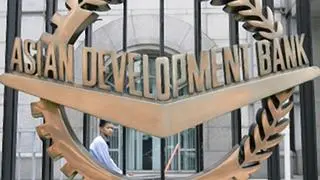Singapore imposed S$27.5 million ($21.5 million) in penalties on nine financial firms, including a few of the world’s biggest banks, for lapses related to the city’s largest money laundering case.
Credit Suisse’s Singapore branch was slapped with the highest amount of S$5.8 million, the Monetary Authority of Singapore said Friday in a statement. The local units of UBS Group AG and Citigroup Inc. were also rapped for breaching anti-money laundering rules.
This is the biggest regulatory action taken by MAS since it shut down Swiss bank BSI SA’s local unit in 2016 and penalized banks for their failings related to Malaysia’s troubled 1MDB fund. The latest move underscores Singapore’s attempts to repair its reputation and draw a line on a S$3 billion scandal that exposed gaps in the city’s defenses against illicit money.
Globally, regulators have frequently imposed tougher fines on banks for anti-money laundering lapses. Last year, Toronto-Dominion Bank reached a $3.1 billion settlement over its failure to catch and stop money laundering at numerous US branches. In 2022, Danske Bank A/S was fined $2 billion to end a long-running US probe into money laundering after admitting that a large chunk of 200 billion euros ($236 billion) in transactions at its Estonian branch were suspicious.
The MAS said the move wraps up its two-year supervisory review in relation to the money-laundering case that publicly unfolded in August 2023. Authorities seized about S$3 billion in assets including cash, real estate and cryptocurrencies related to the case. Ten people of Chinese origin, dubbed the Fujian gang, were convicted while two former bankers were charged in 2024 for their roles in the fiasco.
The breaches by the financial institutions were due to “poor or inconsistent implementation” of anti-money laundering controls, the MAS said. The firms are remedying the deficiencies and the regulator will monitor their progress closely.
Apart from the financial penalties, MAS also issued prohibition orders of between three and six years on four individuals at asset manager Blue Ocean Invest. Several people from other firms drew reprimands from the regulator.
MAS looked at other financial institutions that were involved in the money laundering case, beyond the nine that received penalties.
“In determining whether enforcement action is warranted, MAS takes into account whether the deficiencies amount to significant breaches, and the degree of weakness” in anti-money laundering controls, a spokesperson said.
United Overseas Bank Ltd., Singapore’s third-largest lender, and its associate firm UOB-Kay Hian, Trident Trust, and Blue Ocean Invest said they have taken remedial action to address the gaps. UBS, which took over Credit Suisse in 2023, said it has fully cooperated with the authorities. Citi further strengthened its client onboarding and monitoring processes, among other things, said a spokesman.
Singapore’s attractiveness as a global wealth hub has boosted businesses at banks from DBS Group Holdings Ltd. to UBS. Assets managed by financial firms in Singapore rose 10% to S$5.41 trillion in 2023 from a year earlier.
The scale of the case rocked the wealthy city-state and prompted a government review of its safeguards against dirty money. Singapore was also a focal point of the fraud at German payments firm Wirecard AG.
More stories like this are available on bloomberg.com
More Like This


Published on July 5, 2025


